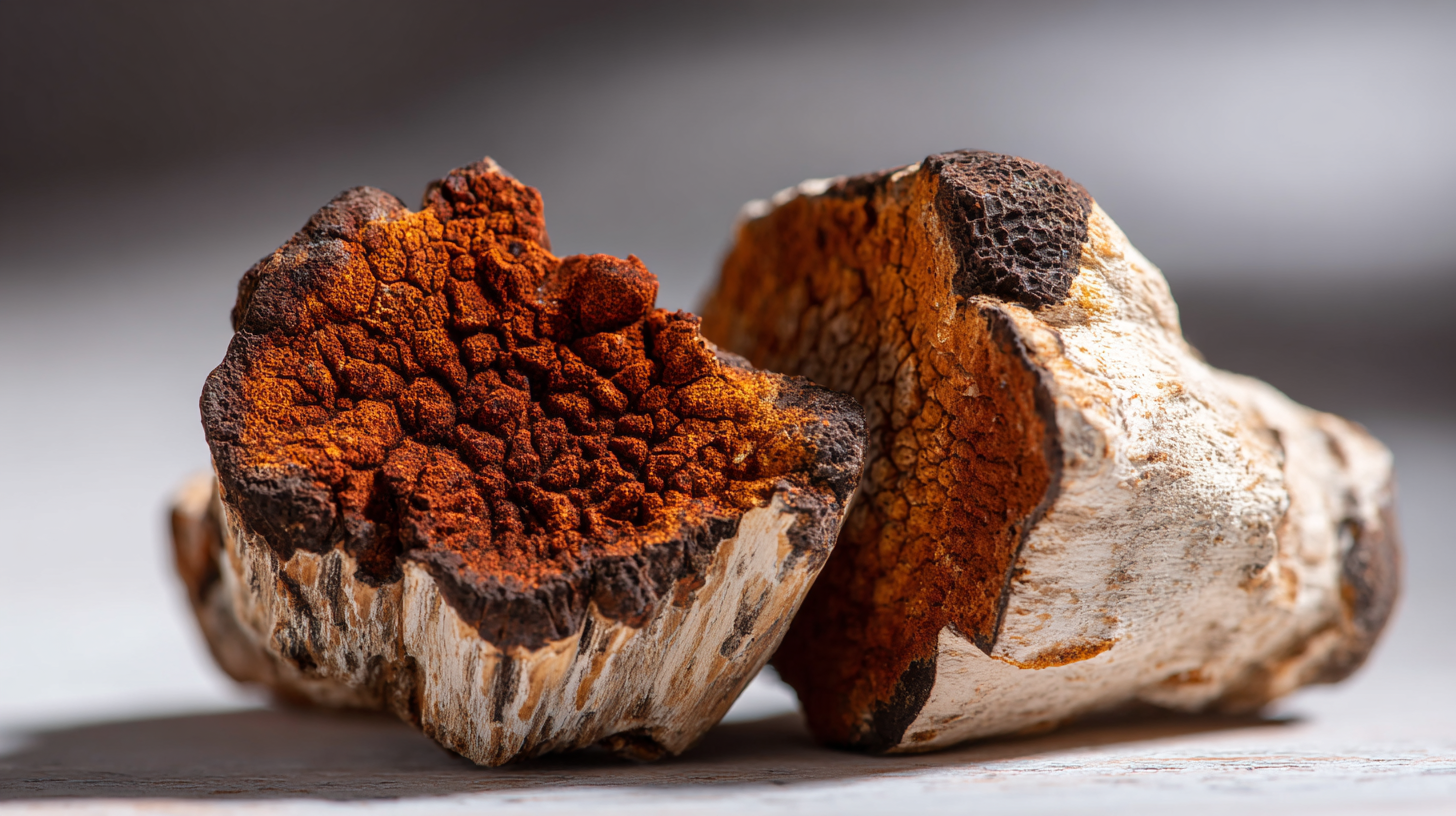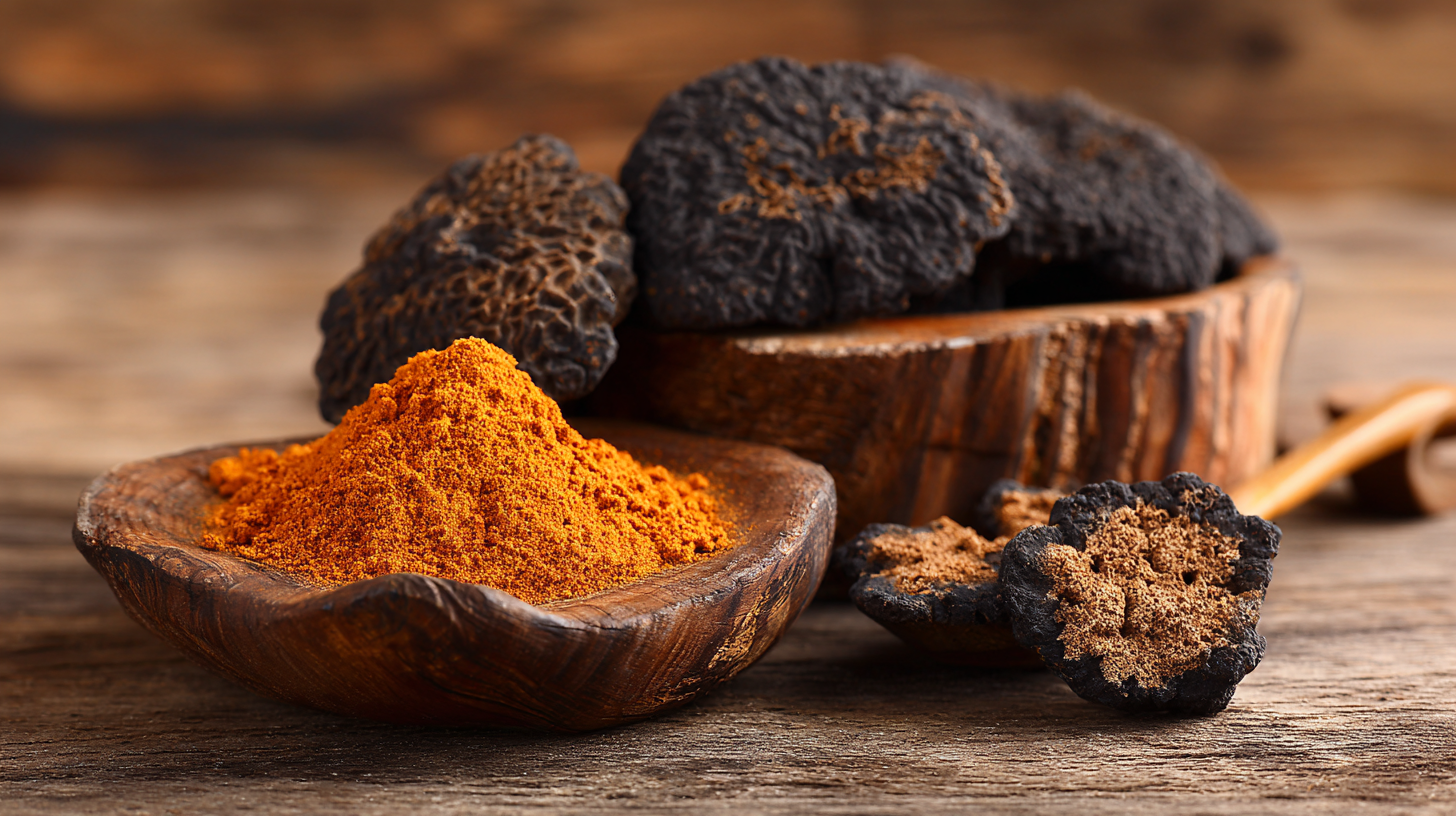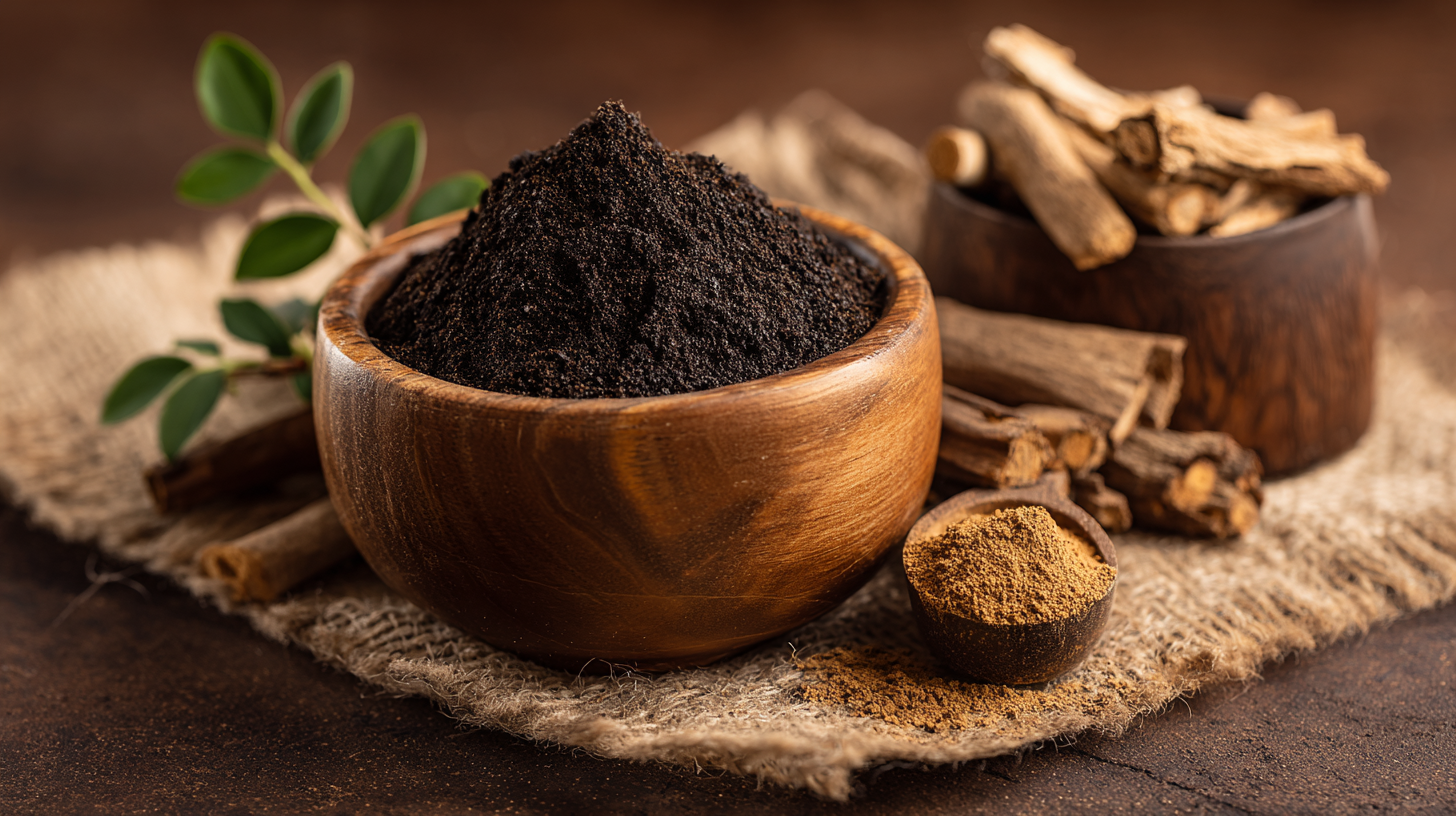In recent years, the popularity of Chaga Mushroom Supplement has surged as consumers increasingly seek natural health remedies. According to industry reports, the global medicinal mushroom market is expected to reach USD 69.3 billion by 2027, with Chaga leading the way due to its impressive health benefits, including anti-inflammatory and antioxidant properties.

However, as the market expands, so too does the complexity of import and export certifications necessary for ensuring product quality and compliance. Navigating these certifications can be a daunting task for manufacturers and distributors alike, often requiring a deep understanding of regulatory frameworks and international trade standards.
This tutorial aims to guide readers through the essential steps to successfully manage import-export certifications, thereby ensuring that their Chaga Mushroom Supplement not only meets consumer expectations but also adheres to legal requirements across different markets.
Import export certifications play a pivotal role in the quality and credibility of Chaga mushroom supplements. These certifications ensure that the products meet international standards, guaranteeing consumers that they are purchasing safe and effective supplements. When a manufacturer possesses the necessary import export certifications, it reflects their commitment to quality control, proper sourcing, and adherence to regulatory guidelines. This transparency builds trust with consumers, who are increasingly seeking products that are not only beneficial but also responsibly sourced.

Understanding the importance of these certifications is crucial for both consumers and manufacturers alike. For consumers, knowing that a Chaga supplement is certified can provide peace of mind regarding its purity and potency. For manufacturers, securing these certifications can enhance their marketability and open pathways to international trade, thus increasing their reach and revenue potential. In a crowded market, having the right certifications distinguishes quality products from those that may not prioritize safety and efficacy. Overall, the focus on import export certifications is vital in fostering a healthier marketplace for Chaga mushroom supplements.
When navigating the import and export of Chaga mushrooms, understanding the regulatory standards is paramount for both business owners and consumers. Chaga, a fungus renowned for its health benefits, is subject to various regulations that vary across regions. In the United States, for instance, the Food and Drug Administration (FDA) classifies Chaga as a dietary supplement, which necessitates adherence to Good Manufacturing Practices (GMP) to ensure safety and quality. Importers must verify that suppliers comply with these standards to mitigate risks associated with contamination or adulteration.
Internationally, different countries have their specific certifications and documentation requirements. The European Union, for example, enforces strict regulations on herbal products, demanding that Chaga supplements meet rigorous safety and efficacy testing before being approved for sale. It's crucial for businesses to familiarize themselves with the importation protocols, including phytosanitary certificates and proper labeling, to facilitate smooth cross-border transactions. By understanding these key regulatory standards, businesses can not only ensure compliance but also build consumer trust in the quality of their Chaga mushroom supplements.
Navigating the intricacies of import export certifications for Chaga mushroom supplements can be quite challenging. One common hurdle businesses face is the complex regulatory framework that varies significantly across countries. Each region has specific requirements regarding health and safety regulations, labeling standards, and quality control protocols. This unpredictability can be daunting for companies seeking to expand their market reach, as they must invest considerable time and resources into understanding and complying with these diverse requirements.
Another significant challenge involves the documentation process. Importers and exporters must secure an array of certificates, such as phytosanitary certificates, quality assurance documents, and organic certification, depending on the destination market. The process can be time-consuming and often involves navigating bureaucratic red tape. Additionally, delays in obtaining these certifications can result in missed market opportunities, further complicating the import-export landscape of Chaga products. Efficiently managing these challenges requires thorough research, careful planning, and often, the expertise of compliance specialists to ensure a smooth export process.
| Certification Type | Issuing Authority | Duration of Process (weeks) | Common Challenges | Estimated Cost ($) |
|---|---|---|---|---|
| Organic Certification | USDA | 6 | Documentation errors, lengthy review | 1200 |
| FDA Registration | FDA | 8 | Understanding compliance requirements | 600 |
| GMP Certification | NSF | 10 | Production audit preparations | 2000 |
| Import License | Customs Department | 4 | Regulatory updates and fees | 300 |
| Export Certification | Department of Commerce | 5 | Legal requirements and tariffs | 400 |
Navigating the landscape of Chaga mushroom certifications can be daunting for both consumers and manufacturers. Ensuring the quality and compliance of these supplements is essential, given the increasing popularity of functional mushrooms. When selecting a Chaga mushroom supplement, it’s crucial to verify that the product meets industry standards and safety regulations. This not only guarantees safety but also maintains efficacy, allowing consumers to reap the full benefits of the supplement.
Tips for ensuring quality include checking for third-party testing. Products that have undergone independent verification are more likely to contain the specified ingredients without harmful contaminants. Additionally, consider sourcing supplements from manufacturers who provide detailed information about their harvesting and processing methods, as transparency plays a key role in quality assurance.
Regulatory compliance is another critical aspect to consider. Ensure that the product adheres to local regulations regarding food and dietary supplements. Familiarizing yourself with these stipulations can enhance trust in the product you are choosing. Always look for certifications that indicate adherence to safety and quality standards to make an informed decision for your health and wellness journey.
The global functional mushroom market is poised for remarkable growth, with a projected market size of USD 83,598.7 million by 2033, reflecting a significant compound annual growth rate (CAGR) of 11.5%. This surge is largely driven by increasing health consciousness among consumers, who are turning to natural supplements for enhanced wellness. Notably, the Chaga mushroom, known for its immune-boosting properties, is gaining traction as a leading choice in this burgeoning market.
Market research indicates that the demand for certified Chaga supplements is not only a response to rising consumer interest but also a reflection of stringent regulatory standards. As functional mushrooms become more mainstream, the need for transparency and certification has never been greater. Reports highlight that the North American market for functional mushroom supplements will see extensive growth, with the trend towards powder and liquid extracts. This pivot to certified, high-quality products underscores a broader movement toward wellness-oriented consumer choices, making it essential for brands to navigate import-export certifications effectively in order to capitalize on this expanding market opportunity.

2025 Bio-Botanica, a division of Bio Answer Holdings Inc. All Rights Reserved.